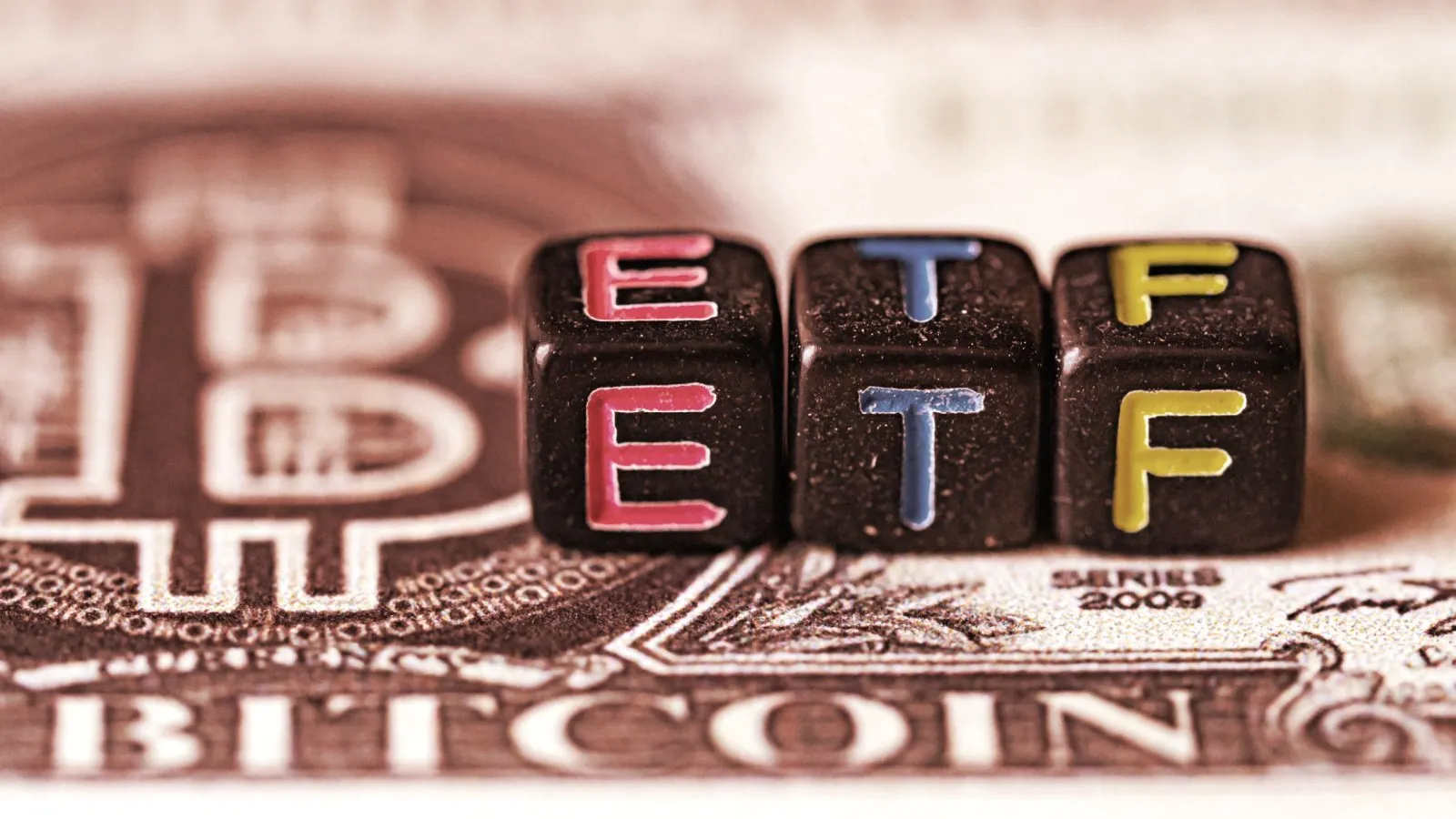The Securities and Exchange Commission appears to be having fruitful discussions with spot Bitcoin ETF applicants.
In late November, both crypto asset manager Grayscale and Wall Street titan Blackrock confirmed having meetings with the SEC to discuss their respective Bitcoin ETF applications. Both firms have since submitted amendments to their applications in the form of S-1 filings. And though these amendments aren’t quite the same as having a transcript of those meetings, they do provide some clues about what the securities regulator has been saying.
What’s more, the amendments suggest that the SEC is carefully weighing these applications, rather than rejecting them outright like it has so many times in the past—often citing the potential for Bitcoin market manipulation in its denials of the investment product.
BlackRock filed a second amendment to its initial June S-1 registration last night. The application for the iShares Bitcoin Trust, which would provide investors with exposure to BTC without the need to buy and hold the asset directly, now specifically mentions the U.S.’s instant settlement system Fedwire and Society for Worldwide Interbank Financial Telecommunication, or the SWIFT network.
Potential Fedwire and SWIFT outages have always been mentioned as risks in BlackRock’s agreement to use Coinbase Prime as its prime broker. But they’re now included in a section that got a lot longer and more specific about reasons why share redemptions for the ETF might be suspended and how investors would be notified.
Other reasons include “disruption or fork of the Bitcoin network, hacking, cybersecurity breach, or power, Internet, or Bitcoin network outage,” according to the December 4 SEC filing. It’s all wording that was in an October amendment to the S-1 filing, but now written to more clearly spell out that it could lead to a suspension of share redemptions.
If BlackRock’s Bitcoin ETF needs to be dissolved, it’s not going to give investors the BTC it bought with their money. The S-1 registration now says that the underlying BTC would be liquidated and distributed to investors as cash—”shareholders are not entitled to any of the Trust’s underlying Bitcoin holdings.”
Another new section specifies that market makers from whom the Trust purchases Bitcoin are required to perform due diligence to ensure that the funds “were not derived from, or associated with, unlawful or criminal activity.” It’s a timely addition. Binance last month paid $4.3 billion to settle federal charges. Among them was an allegation that the crypto exchange had weak money laundering controls.
The regulator seems to have also been concerned about how shareholders can get reliable intraday price information.
To that end, the BlackRock filing has gotten more detailed in spelling out that investors can use the CME CF Bitcoin Real Time Index, or BRTI, which is “updated every 15 seconds” during Nasdaq’s regular market session from 9:30 a.m. to 4:00 p.m. ET. That cadence is industry standard for determining the intraday value of exchange-traded funds, but appears to be something the SEC wanted made clear for traders.
CME launched its BRTI real-time price index in 2018, writing at the time in an announcement that it was “accelerating the professionalization of Bitcoin trading and further establishing cryptocurrencies as a new asset class.”
Earlier versions of BlackRock’s filing have mentioned the CME CF Bitcoin Reference Rates and Benchmarks Index. Although similar, those two references publish once per day right as trading ends in a handful of major financial markets like Hong Kong, London, and New York.
The BlackRock filing shows that the Wall Street titan has already sold $100,000 worth of shares to a seed investor at a price of $25 per share. Not an implied approval by any means, but a sign that the asset manager is feeling bullish enough to get the ETF seeded.
The new version of the iShares Bitcoin Trust registration now also discloses that Coinbase Custody, the custodian of choice for most Bitcoin ETF applicants, has insurance coverage of up to $320 million to cover “losses of the digital assets it custodies on behalf of its clients.” BlackRock, however, isn’t guaranteeing that coverage or that shareholder losses will be covered by the company’s policy.
A section on the custodian’s liabilities now also defines a narrow set of circumstances under which Coinbase would be expected to cover shareholder losses: “In general, the Bitcoin Custodian is not liable under the Custodian Agreement unless in the event of its negligence, fraud, material violation of applicable law or willful misconduct.”
For Bitwise, which also filed an amendment to its Bitcoin ETF application yesterday, some of the changes are more straightforward. The name of the potential fund has been changed from “Bitwise Bitcoin ETP Trust” to “Bitwise Bitcoin ETF.”
The other changes in Bitwise’s application cover a lot of the same ground as Blackrock by spelling out the risks of investing in a trust that buys Bitcoin.
Even though the SEC still has another month before it’s due to make a decision on any of the Bitcoin ETF applications, investors have been dumping cash into crypto exchange-traded products at a blistering pace. Last week saw $176 million go into crypto ETPs. And if investors deposit funds at the same rate this week, that could bring the three-month total to almost $2 billion.
There’s still no guarantees that the market will have a spot Bitcoin ETF any time soon. But the recent changes add a bit more context to the wave of delays announced last month.
Edited by Guillermo Jimenez

